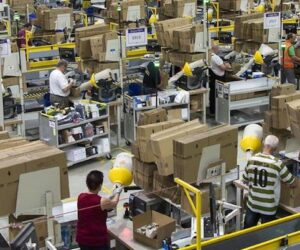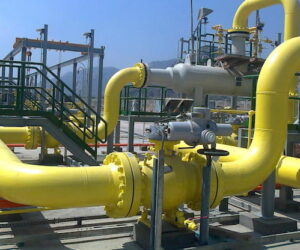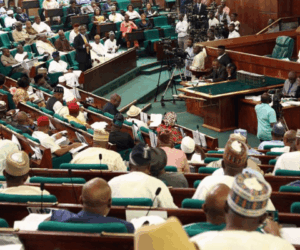Seplat Energy Plc, Nigeria’s independent energy company, has taken a step toward reshaping the country’s energy landscape by delivering its first domestic supply of Liquefied Petroleum Gas (LPG) from the Bonny River Terminal (BRT) in Rivers State.
In a Joint Venture with Nigerian National Petroleum Company Limited (NNPCL), Seplat Energy completed the loading of 12,600 metric tons of butane, marking a decisive shift in the country’s long-standing reliance on imported cooking gas.
For decades, LPG produced from the BRT, an asset previously operated by ExxonMobil and acquired by Seplat, was almost exclusively exported, depriving the domestic market of much-needed supply.
Read also: Boost for cooking gas as NNPC, Sahara expand fleet to 160,000 cubic meters
The landmark cargo, therefore, signals not only a milestone for Seplat but also a pivotal moment for Nigeria’s quest to strengthen energy security and sustainability.
Nigeria has one of the largest natural gas reserves in the world, but poor infrastructure and fragmented policies have left the domestic gas market underdeveloped. As a result, more than 70 percent of the LPG consumed locally has historically been imported, making prices vulnerable to foreign exchange (FX) fluctuations and global supply disruptions. With this new development, Seplat has begun to reverse the trend, injecting locally produced LPG into Nigerian kitchens and small businesses.
The move aligns with the company’s broader gas-focused strategy, anchored on expanding supply into the domestic market. Seplat is simultaneously developing two major gas processing facilities, the 300 million standard cubic feet per day (MMscfd) ANOH Gas Plant in Imo State and the 90 MMscfd Sapele Gas Plant in Delta State.
Both plants are equipped with dedicated LPG units capable of producing 120 metric tons and 163 metric tons per day, respectively, and are expected to come on stream by the fourth quarter (Q4) of 2025.
Significance
The significance of these investments cannot be overstated.
Nigeria’s overreliance on biomass and kerosene for cooking among its estimated 200 million people has been a major driver of deforestation, greenhouse gas emissions, and public health challenges.
According to the International Energy Agency, nearly 80 percent of Nigerian households still rely on firewood, charcoal, and other polluting fuels. By boosting the supply of affordable LPG, Seplat’s initiative offers a cleaner, safer alternative for millions of families.
Roger Brown, chief executive officer of Seplat Energy Plc, underscored the importance of the breakthrough in supporting the nation’s energy transition.
“Usage of gas and LPG is on the rise in Nigeria, and reliable supply is critical in ensuring energy security in the country as well as reducing carbon emissions and other harmful air pollutants,” Brown said. “At Seplat, we are proud to be driving this transformation, delivering cleaner energy solutions that empower communities and drive inclusive growth.”
Industry analysts note that Seplat’s entry into the domestic LPG market could have ripple effects across Nigeria’s energy ecosystem. By reducing the pressure on foreign exchange through import substitution, the initiative can help stabilise cooking gas prices, which have been volatile in recent years. It also creates opportunities for downstream businesses involved in distribution, storage, and retailing of LPG, thus strengthening the broader energy value chain.
Furthermore, the project strengthens Nigeria’s commitment to global climate goals. The federal government has consistently emphasised gas as the country’s transition fuel under its ‘Decade of Gas’ initiative. Seplat’s progress demonstrates how indigenous companies can lead in implementing this vision by translating resource potential into tangible benefits for households and industries.
For communities, the implications go beyond cheaper cooking fuel. Widespread adoption of LPG reduces indoor air pollution, a major cause of respiratory illnesses and premature deaths in Nigeria. It also lowers the demand for firewood, slowing deforestation and helping to preserve ecosystems that are vital for climate resilience.
The Bonny River Terminal project highlights the evolving role of indigenous players in the country’s oil and gas sector. Since acquiring assets once held by international oil companies, Seplat has increasingly positioned itself as a champion of domestic energy security. This latest milestone, coming just months after the completion of the ExxonMobil asset transfer, underlines the company’s determination to not only extract resources but also process and distribute them in ways that directly benefit Nigerians.
Read also: Nigeria unveils industrial energy efficiency database to tackle waste
Still, challenges remain. Expanding domestic LPG penetration requires massive investment in infrastructure, particularly storage, transportation, and distribution networks that can reach remote areas. Regulatory consistency and consumer education will also be critical in ensuring that the benefits of Seplat’s initiative are felt across the country.
Nevertheless, the first domestic LPG supply from BRT offers a glimpse of what is possible when strategic investments meet national priorities. For Seplat, it is a validation of its gas-led growth strategy. For Nigeria, it is a reminder that unlocking the potential of its abundant gas reserves is key to securing a cleaner, healthier, and more resilient energy future.
At a time when many Nigerians are grappling with high energy costs and the environmental consequences of outdated fuels, the ability to source LPG locally is not just a commercial achievement but also a lifeline for households. As Seplat and its partners ramp up production and distribution, the prospect of affordable, sustainable energy for millions of Nigerians draws closer to reality.









